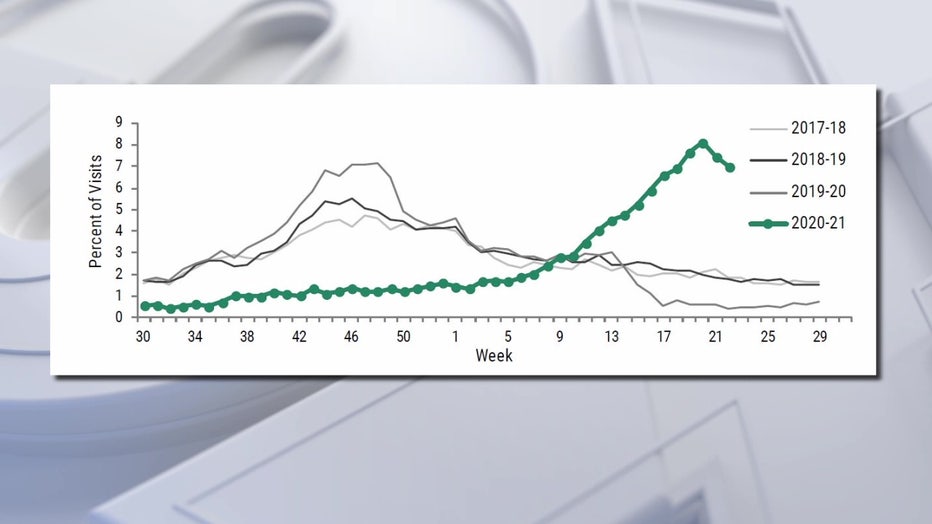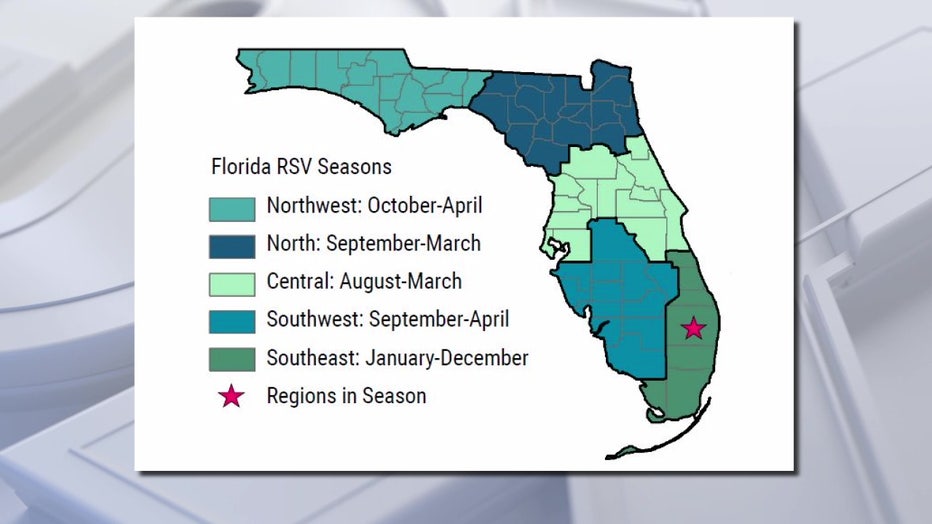RSV cases surge in Bay Area, prompting doctors to warn parents about symptoms
TAMPA, Fla. - The Centers for Disease Control and Prevention issued a health advisory about a spike in RSV cases being seen across southern states last week. FOX 13 News has learned that the respiratory virus in children is surging in the Tampa Bay area.
Respiratory syncytial virus, or RSV, is an infection that usually causes cold-like symptoms. Most kids recover, but for toddlers and infants, it can be dangerous.
"RSV is a very common virus and actually all children by the age of 2 will have at least gotten it once if not twice," explained a pediatric pulmonologist at St. Joseph’s Children’s Hospital, Dr. John Prpich.
Officials say with families staying home, wearing masks, and social distancing due to COVD-19, RSV did not spread as it normally does. Now Tampa Bay is seeing a delayed surge in cases as restrictions relax, and people mingle more.

Data on rising RSV cases
"I just don’t think any of us were prepared for a full-blown RSV season April, May, June like we’ve seen," said Johns Hopkins All Children’s Hospital VP of medical affairs, Dr. Joseph Perno.
The RSV season in Florida is longer than the rest of the country, with each region being a little different. In the Bay Area, RSV typically hits between August and March.
Not this year.
"So we’re seeing very large numbers, over the last three months we’ve seen about 200 cases," said Perno.
Between May 23 and June 5, the Florida Department of Health reports seven outbreaks of RSV in childcare facilities across the state, with a high percentage of children testing positive for the virus.

Typical RSV season in Florida
"We’ve been just climbing like a very steep slope going up, and so the last time I looked we were around 35%," Prpich said. "We are very, very high for this time of year for sure, but very, very high for a typical RSV season."
RSV may start out like a typical cold, but doctors urge parents to monitor their kids closely. The virus can cause severe respiratory issues that are usually worse the younger your little one is. If they are struggling to breathe, eat or drink you should get them checked out.
"As they get those breathing troubles they often get feeding troubles, so now we worry about dehydration because the babies are working so hard to breathe they can’t feed properly," said Perno. "And then the youngest babies and the premature, RSV can actually cause babies to stop breathing altogether."
LINKS:
- CDC Health Advisory for RSV: https://emergency.cdc.gov/han/2021/han00443.asp
- CDC State RSV trends: https://www.cdc.gov/surveillance/nrevss/rsv/state.html
- FL DOH RSV monitoring: http://www.floridahealth.gov/diseases-and-conditions/respiratory-syncytial-virus/index.html


